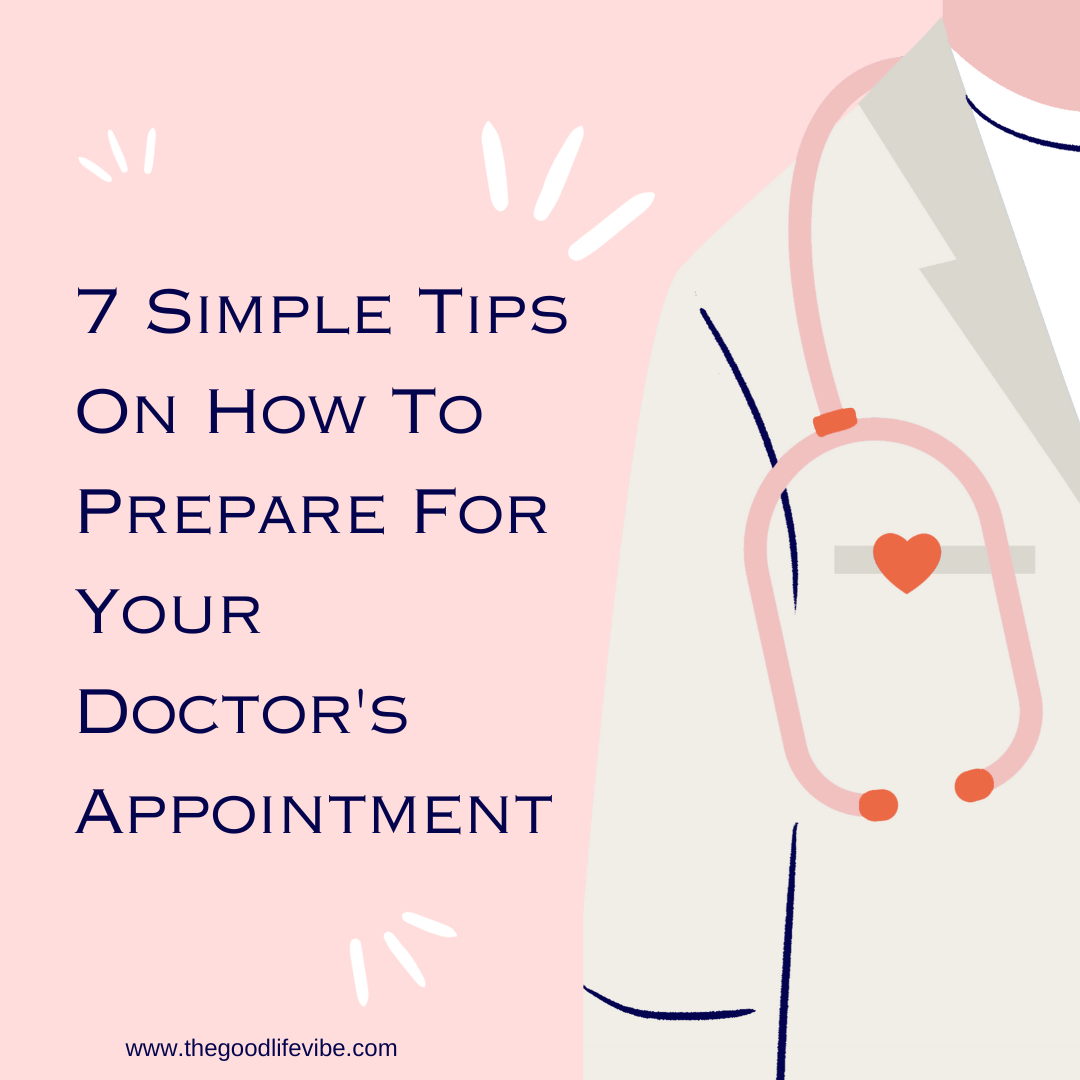
7 Simple Tips On How To Prepare For Your Doctor's Appointment
Share
Headed to see the Doctor to discuss what's going on with your health? Maybe you're trying to get a diagnosis or maybe you've got a routine follow up visit.
No matter why you're going, this article is going to help prepare you for being able to discuss the most important things going on in your health while at your visit.
Let's face it, an unfortunate fact these days, is that time spent together with your Doctor can be quite limited.
I've had appointments that I was only given 15 minutes with my Doctor, appointments that I could only discuss one area of concern, appointments that I've waited months for to be seen by someone other than scheduled with and so on.
Because of that, I've learned how to prepare for these appointments and how to maximize my time there and wanted to share that knowledge with others.
Here are 7 simple tips on how to prepare for your upcoming Doctor's appointment. These will really help while getting your diagnosis or working towards a treatment plan if you've been chronically ill.
Create a Health Journal:
Start by keeping a health journal. Jot down any symptoms, changes in your condition, or concerns you've noticed since your last visit. This will help you provide accurate and detailed information to your doctor, ensuring they have a clear picture of your health. A simple notebook will do but I like to use my Chronic Pain Symptoms Tracker because some days can just be a little much and I forget things. This has everything I need to track in it so that I can hand it over and my Doctor has a record of my day to day health.
List Your Medications:
Make a list of all the medications you're currently taking, including dosages and frequency. Be sure to include any supplements or over-the-counter medications that you've been taking. This will help your doctor assess your overall health and avoid potential interactions. This can be extremely important as you begin treatment.
Note Questions and Concerns:
Before your appointment, take some time to jot down any questions or concerns you may have. When you're in an appointment, It's easy to forget things in the moment or even get side tracked, so having a list with those questions or concerns, helps you with discussing everything that's on your mind at the moment.
Bring a Supportive Friend or Family Member:
I've walked in to many an appointment and not remembered everything that my Doctor said to me as well as what some of the terminology s/he used. Trying to tell my husband about it has proved to be a challenge so I always suggest to others that if you can, bring a trusted friend or family member with you to your appointment. They can provide emotional support and help you remember important details. They can also take notes during the appointment, which can be valuable for reference later. You can also ask them to step out of the appointment if needed.
Arrive Early:
Ever been late to an appointment because of traffic only to be told that you have to reschedule? It's frustrating, right!?! One of the best things you can do is to arrive early so you have time to relax and know that you're on time. It also allows you some extra time to fill out any necessary paperwork you might be given, use the restroom or grab some water. This can help reduce stress and ensure you have enough time to discuss all your concerns with your healthcare provider.
Be Honest and Open:
During your appointment, you're going to get some questions about your day to day life. Some things you might not want to talk about for a variety of reasons. Maybe you think that these things are minor or even unrelated. Maybe they are asking about things that are about your daily habits. Either way, be honest. Your doctor needs the full picture to provide you with the best care possible. Don't be afraid or embarrassed to discuss your daily life and well-being and especially how it's changed or been altered since your symptoms started. The more that they know, the better they can help figure out what it is that's going on so hopefully you'll be well again.
Collaborate with Your Doctor:
Your doctor is supposed to be your partner in managing your health. The goal is to work together to create a treatment plan that works for you. Discuss any lifestyle changes, adjustments to medications, or additional support you may need. Don't be afraid to speak up for yourself and what you desire your life to look like.
To sum things up, I've given you 7 simple tips on how to prepare for your Doctor's appointment.
With a little planning and using this list as a guide, you can make the most out of your appointments and work towards better health and well-being with your Doctor. Be sure to grab the pain and symptoms tracker and print this post out for your next appointment.
If this post was helpful for you (or you think it would be helpful for someone you know), please be sure to share it with one of the options below.
In this together!
xoxo,
Laura
